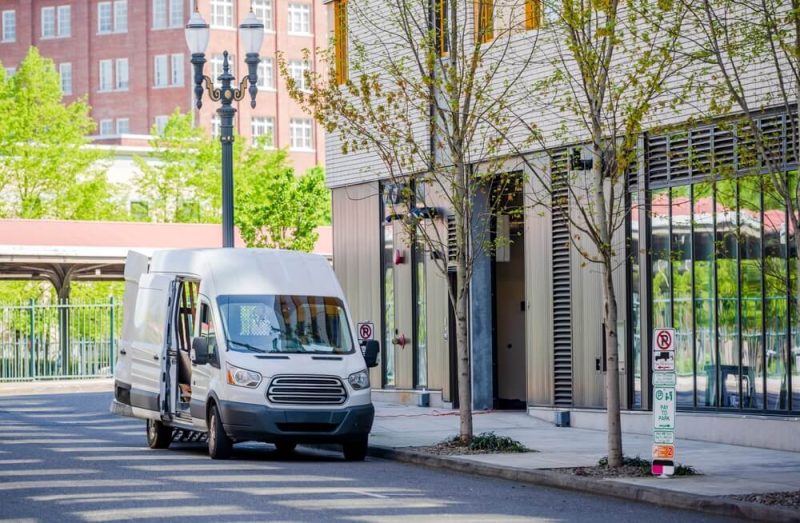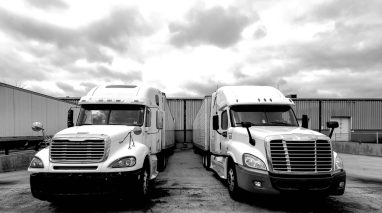Blog
When Your Business Wheels Need More Than Just a Tune-Up: Commercial Auto Insurance 101

Running a business in Washington can feel like trying to drive a stick shift uphill in downtown Seattle during rush hour… possible, but not without some sweat and a few choice words. Throw company cars, vans, or trucks into the mix, and suddenly you’re balancing schedules, weather, and drivers with questionable taste in radio stations.
That’s where commercial auto insurance in Washington becomes more than just a legal requirement. It’s the peace of mind that lets you focus on running your company instead of running from tow trucks. Your Vern Fonk agent will help you go shopping for Washington commercial auto insurance quotes.
What Is Commercial Auto Insurance?
Up here in the PNW, it’s easy to see why a business might want to protect its assets. And if you’re looking to protect your own, whether from a stray Sasquatch or something even more nefarious, then you want it too. Commercial insurance provides industrial-grade financial protection for liability, collision, and underinsured drivers. It’s absolutely essential if you’re running your own operation in Washington.
How It Differs from Personal Auto Coverage
Think of vehicle insurance for businesses as the more responsible cousin of your personal auto policy. Personal coverage is happy to tag along for grocery runs or weekend road trips, but the second you slap a business logo on the door or load up the back with work supplies, it bows out. Commercial auto insurance sticks around, covering you when your minivan is hauling catering trays through Tacoma or your pickup is loaded with roofing materials in Spokane.
Who Needs It in Washington
It doesn’t matter if you run a one-vehicle landscaping business or manage a fleet of delivery trucks; if a vehicle is used for work, it needs business coverage (or, in the case of the delivery trucks, fleet insurance). How many vehicles do you need to have before you buy fleet insurance? Maybe 5, maybe 2, maybe more – it all depends on your insurance company. In Washington, it could be anything from a couple of florist’s van in Olympia to a dozen trucks carrying apples across the Cascades. The scale doesn’t matter, but the purpose does.
Key Coverages for Your Business Vehicles
Imagine your commercial policy as being comprised of multiple pillars, or legs. Like a stool. Or a table. You get the drift. There are a few different “building blocks” to consider, including liability, collision, uninsured, and comprehensive. Here’s how to think about commercial vehicle protection (but be sure to talk more with your Vern Fonk agent in case you need to identify gaps in your plan).
Liability Protection
The backbone of any commercial policy is liability protection. Washington law requires all vehicles to carry liability insurance, but business vehicle coverage usually needs higher policy limits for commercial auto than the average commuter sedan. If your delivery van nudges a Tesla in Bellevue, the repair bill alone could rival a year of UW tuition.
Collision and Comprehensive
Of course, liability is only part of the puzzle. Collision coverage steps in when your own vehicle is damaged in an accident, whether that’s tapping a guardrail on Snoqualmie Pass or if your truck rear-ends another vehicle in Spokane traffic. Comprehensive protection handles the non-crash disasters — theft, vandalism, hail, or even the occasional raccoon chewing through your wiring in Olympia.
Uninsured/Underinsured Motorist Coverage
Many businesses also carry uninsured or underinsured motorist coverage. That way, if another driver fails to carry adequate insurance, your company isn’t left holding the bill when your van becomes the victim of their “I thought I could make it through that stop sign” moment.

Special Considerations for Washington Businesses
Now, some states have it easy. If you’re driving, say, a truck around Las Vegas, you don’t have to worry too much about freak storms (although that heat isn’t fun). But up here in the PNW, there’s a lot to be mindful of as far as road conditions. Specifically, seasonal weather risks (the kind that tend to cause floods and other hazards) and some deeply rural areas with less-than-ideal infrastructure.
By the way, did you know that the Office of the Insurance Commissioner in Washington State has written a lot about how business insurance works?
Seasonal Weather Risks
For one thing, the PNW weather has mood swings that will keep you guessing. In western Washington, the near-constant drizzle makes hydroplaning an unofficial pastime, while eastern Washington piles on enough snow to turn Spokane into a snow globe every winter. Mountain passes add their own brand of fun, with ice, fog, and the occasional boulder sitting right where your truck needs to be.
City vs. Rural Driving Challenges
Then there’s the geography. Seattle drivers wrestle with tight streets, cyclists, and scooters darting between cars, while rural businesses contend with deer, elk, and Bigfoot; okay, maybe not Bigfoot, but you get the idea.
And let’s not forget ferries. Where else in the country do you need your work van insured for both highways and a boat ride across Puget Sound? That’s the trick behind small business insurance in WA.
Tips for Keeping Premiums Manageable
When it comes to keeping premiums at a manageable level, there are a few things to consider. First, make sure you’re screening your drivers, if you happen to have any working for you. Have a rigorous maintenance schedule (be sure to check for any Bigfoot damage). Additionally, establishing a driver safety program can help to give your underwriter peace of mind when underwriting your policy.
Safe Driving Programs
Insurers reward businesses that reduce risk, so it pays to invest in your people and your vehicles. Training employees on safe driving habits can lower your risk profile, and documenting that training shows insurers you’re serious. Some companies even install telematics devices to monitor driving behavior. Not to spy on Gary from accounting, but to catch patterns like hard braking or speeding before they turn into accidents.
Vehicle Maintenance Records
Keeping vehicles well-maintained also matters. A truck with regular oil changes, brake checks, and tire rotations is less likely to break down or cause a crash. Keeping those records handy tells your insurer that you’re proactive, which can translate into more manageable premiums. It’s a little like flossing: nobody enjoys it, but skipping it always costs more later.
Filing Claims Without Losing Your Sense of Humor
No business owner dreams of filing business auto claims, but accidents happen. Maybe it’s a fender bender in downtown Tacoma, or maybe it’s a tree branch that decides your company van’s roof looks like a nice landing pad. Either way, the process is smoother if you keep your wits about you. Take care of anybody who is injured, document the scene with photos, grab names and numbers from anyone nearby, and call your insurer as soon as possible.
It’s tempting to get frustrated when you’re stuck waiting for a tow truck in the rain but remember: You’re covered. Commercial auto insurance exists so you can laugh about the situation later, rather than calculating how many lattes you’ll need to sell to pay off a repair bill.
Reach Out to Vern Fonk and Get Your Business Wheels Covered Today
From delivery vans in Everett to cherry-hauling trucks in Yakima, Washington businesses rely on their vehicles every day. Don’t leave yours vulnerable. Vern Fonk has been helping businesses just like yours protect their rides for decades, with coverage options tailored to your needs and your budget. Give us a call today at (800) 455-8276, get a quote online, or visit us in person at one of our local offices!
FAQs
Do I Need Commercial Auto Insurance If I Only Have One Vehicle?
Yes. Even if it’s just a single van delivering cupcakes around Spokane, it still counts as a business vehicle and needs coverage.
Does It Cover Employee Drivers?
It does. As long as they’re authorized, your employees are protected, karaoke playlists and all.
Does Commercial Auto Insurance Cover Trucks?
Absolutely. From pickups to semis, Washington trucking insurance is a core part of commercial auto coverage.


